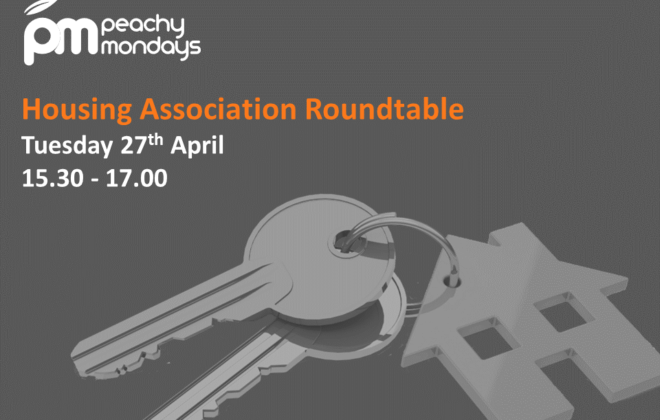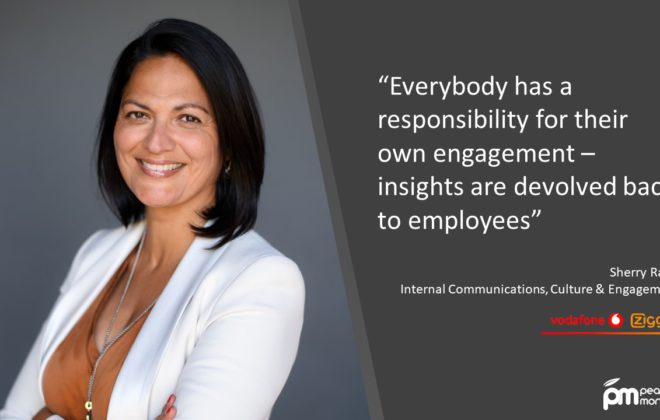Conscious Quitting – what is it and how can we address it?
To join us at a roundtable on this subject on Wednesday 5th July from 13:00 – 14:30, please contact scott.mills@peachymondays.com to reserve your place
We’re inundated with buzzwords around employee trends – ‘the great resignation’, the ‘big burnout’, ‘quiet quitting’, and now ‘conscious quitting’.
In short, this means choosing to leave an organisation when your values don’t align – particularly when those values have a social, environmental, or equality misalignment, or when you see your organisation espousing responsibility in adverts, and not walking the talk in practice. People are increasingly leaving their jobs to pursue a more meaningful, fulfilling, and purpose-driven career path.
And evidence would suggest that conscious quitting is on the rise
- According to a survey conducted by Deloitte, 43% of Millennials plan to leave their current jobs within two years, and one in four plan to leave within a year. This is significantly higher than the 28% of Gen X’ers who planned to leave their jobs within two years and 21% of Baby Boomers.
- A survey by LinkedIn found that 74% of job seekers say that they want a job that is more fulfilling than their current job.
- A study by the Society for Human Resource Management found that 55% of employees said that meaningful work was “very important” to their job satisfaction, and 58% said that work-life balance was “very important.”
We talked to one of our Senior Consultants, Kerry Freeman about her experience.
“In 2022, I attended a course on climate coaching, to enhance my coaching practice. It was a big wake-up call, and since then I’ve changed almost everything about my life to live a more climate-conscious existence.
“None of this used to matter in the workplace. Social justice, politics, and climate change used to be no-go work conversations with many workplaces declaring ‘neutral ground’. But ‘neutral ground’ isn’t good enough anymore for those with a choice about where to work. People want to know that they’ll get equal pay, that everyone they work with has a living wage, that they’re not directly or indirectly supporting endeavours that contribute to climate change.
“But I still need to earn money to live and keep my dog in the lifestyle she has become accustomed to, right?
“For all of us, the best possible situation is that our values and the values of the organisation completely align. That we are in sync, and we feel pride in the contribution we make together.
“This can be pretty rare – and usually, we’re asked to trade off our personal values for security or income. Because in our society, money and what you can buy with it are generally seen as more important than values.
“So, we start to feel a sense of ‘Cognitive Dissonance’ where our behaviours don’t align with our actions. It can be deeply uncomfortable, stressful, and anxiety-inducing. The more important the value is to you, the more intensely you will feel the discomfort.
“Our overwhelming desire is to rebalance – and so we change our values or our behaviour. And one behaviour we can change in the workplace is voting with our feet and leaving.”
So, what can employers do to avoid conscious quitting and retain their best employees?
Here are some tips:
1. Explore your purpose as an organisation with your colleagues
‘To make money for our shareholders’ or ‘To make the best product’ aren’t purposes – they’re outcomes, and it’s possible to have those outcomes whilst still being a force for good. When you begin to answer the questions ‘Why are we here?’ And ‘What would happen if we weren’t?’ then you’re getting closer to real purpose, and you can then connect that purpose to the planet, to society, and to your people.
2. Be honest about your shortcomings and involve colleagues in your journey
There are few ‘perfect’ organisations when it comes to social and environmental responsibility, but your organisation could move in that direction. Empower colleagues with a passion for responsibility to be your internal activists – pushing for change and suggesting alternatives. Ensure these voices are heard and taken seriously and devote resources to trying new approaches. Involve them in the journey and your colleagues will be your biggest champions.
3. Educate yourself and your workforce on the things that matter
Climate change is complicated and the impacts on society are wide-ranging. It’s no use putting your head in the sand and believing that ‘Business as Usual’ will always be ‘usual’. But if you educate yourself and your colleagues, you’ll begin to see a multitude of opportunities to have an impact.
4. Foster a Positive Work Culture and Meaningful Work
The culture of a workplace can have a significant impact on an employee’s sense of purpose and fulfilment. Employers can create a positive work culture by encouraging open communication, recognizing and rewarding employee contributions, and providing opportunities for growth and development. Incorporating employee volunteering – whatever shape that takes – into your employee value proposition is also a powerful tool to connect colleagues to your purpose, to the planet and is a great team-building opportunity
5. Care for your colleagues
Employees who feel burned out and overworked are more likely to experience conscious quitting. Employers can show they care by offering flexible schedules, remote work options, paid time off, a living wage and equal pay, and access to an employee assistance programme. But this is about more than a work schedule, listening to colleagues is a great way to show you care. Whether that’s surveys, focus groups, or coaching.
In conclusion, conscious quitting is a growing trend in the workforce. By taking these steps, employers can retain their best employees and create a more engaged, fulfilled, and purpose-driven workforce.
Listen better. Act faster. Drive engagement & effectiveness.
To find out more about the benefits of Peachy Mondays for your organisation please get in touch today.
To join us at a roundtable on this subject onWednesday 5th July from 13:00 – 14:30, please contact scott.mills@peachymondays.com to reserve your place
If you’ve found this article helpful, please sign up to our newsletter to stay informed of the latest insights from Peachy Mondays.
Related Posts
Categories
- Case Study (13)
- Change and transformation (21)
- Connectedness (4)
- Culture (17)
- Design (10)
- Diversity and Inclusion (1)
- Effectiveness (16)
- Employee engagement (60)
- Employee experience (43)
- Employee Feedback (51)
- Employee Wellbeing (1)
- Events (10)
- Financial Wellbeing (1)
- Happiness (4)
- Internal Communications (10)
- News (24)
- Onboarding (1)
- Organisational Effectiveness (18)
- Uncategorized (3)




